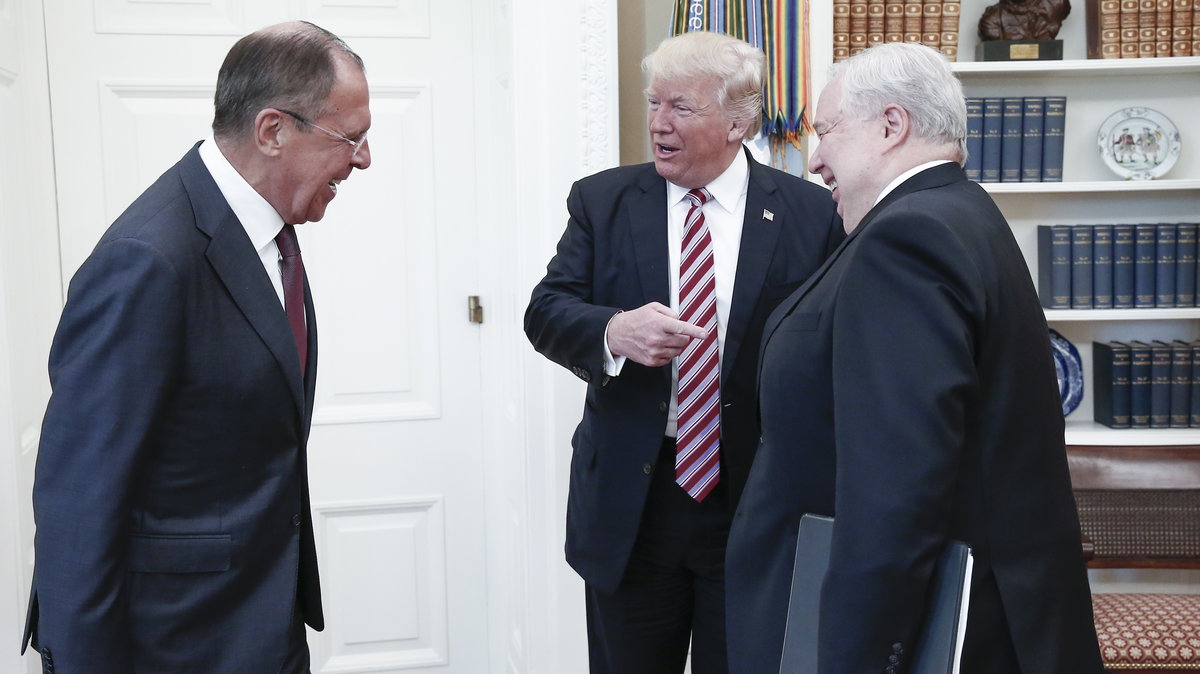Since Trump is a strange, Twitter-enabled Nixon, might today’s Woodwards and Bernsteins will be equally strange and Twitter-enabled?
I ask because the MSM has done an uneven job in dealing with what’s gone on in the open with the Trump Administration, while failing to make any headway in regards to its possible treasonous acts. Sure, there’s a chance there’s nothing to be seen there, but that possibility grows slimmer seemingly daily. Judy Woodruff telling her PBS NewsHour staff that “they would cover this President just as they would any other” does not reassure, because this is not the same old. This is an emergency.
The dismissal of FBI Director James Comey, deep into an investigation of Russian collusion and requesting more money to further the probe, is particularly stunning. Despite what’s gone over the last year, Comey was likely our best hope for finding out what lies beneath.
The firing has led Matt Yglesias to suggest that Trump may have committed an impeachable offense in th form of obstruction of justice. The Vox writer is as smart as can be, but he maintains that if the GOP Congress doesn’t allow an independent investigation, it’s because of partisanship or dysfunction. I think it’s fair at this point to consider that it may be something far more sinister.
In the piece, Yglesias references evidence published by “credible journalists in credible publications,” but these are incredible times. The answers may be in the margins.
An excerpt:
REPUBLICANS HAVE THEIR HEADS IN THE SAND
The key leaders of the Republican Party are, once again, protecting and defending Donald Trump. And once again, there is a small thread of dissent, with various more vulnerable members of Congress suggesting that they find the timing suspicious or otherwise troubling. John McCain is even back to making trouble about the need for a more serious independent inquiry into Russia matters.
But while the Russia matter is, of course, important, at this point, to simply focus on Russia is to miss the elephant in the room: Trump and obstruction of justice.
Congress ought to investigate what really happened here. Did Deputy Attorney General Rod Rosenstein really write a memo about Comey’s handling of the emails that was so persuasive it convinced Sessions and Trump to both change their minds and fire Comey? Or, as seems much more plausible, was he tasked with writing up a memo that would validate an already-made decision on the theory that if the Trump administration aligned themselves with earlier Democratic criticism of Comey, they would be unable to knock him for the firing?
And if so, what was the real reason Comey was fired — and how did it relate to the president’s anger over the Russia investigation and its forward progress?
The odds that a Congress under continued GOP control will pursue such questions seem slim. During the 2016 presidential campaign, few Republicans in Congress were under the delusion that Trump’s rise to prominence was a good thing for the conservative movement. They worried, overwhelmingly, that his erratic ways were going to drag them down with him.
Ever since Election Day, they have operated in a strange moral and intellectual miasma that’s led them to forget all that and invest their energy in defending him, believing that to be the best path forward for American conservatism. One can only hope at this point that they’ll reconsider before it’s too late. If not, America is going to need a different group of Congress members.•

